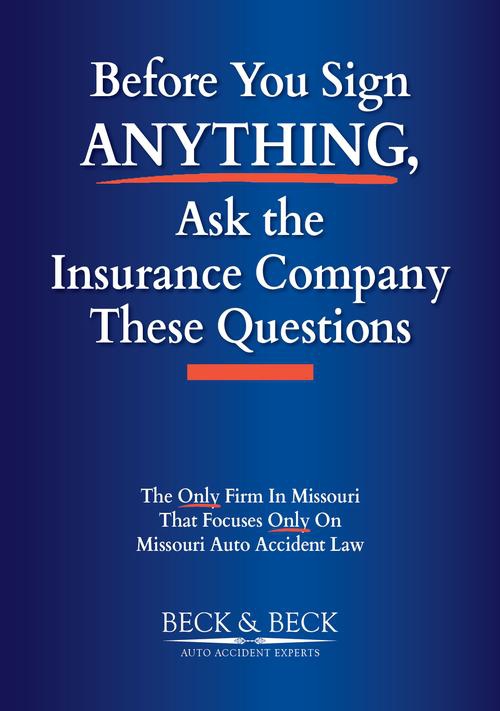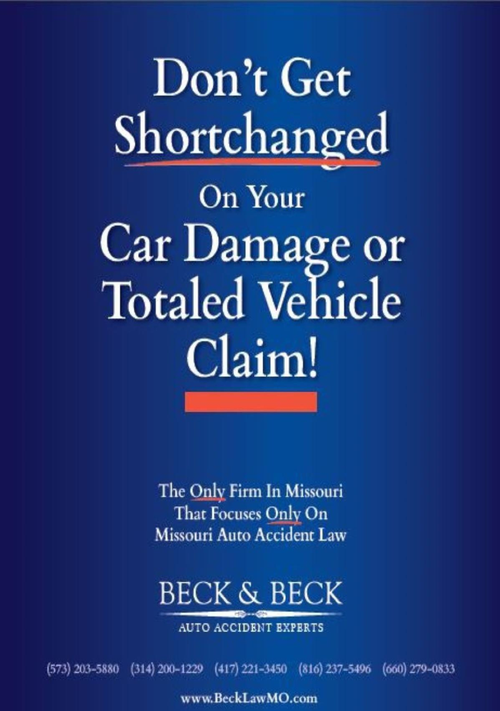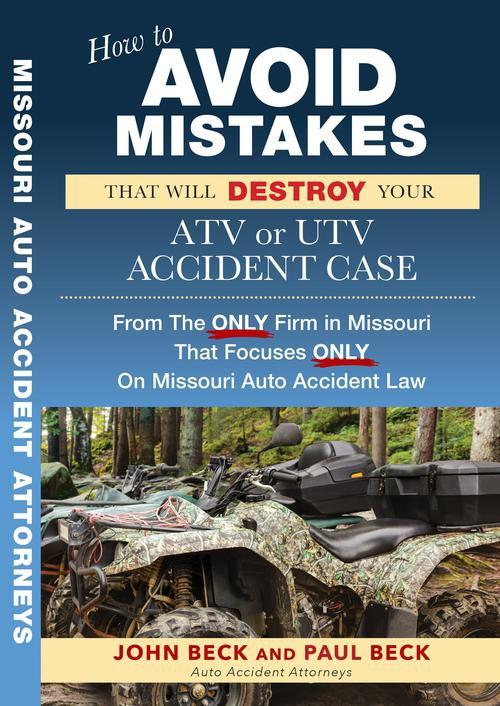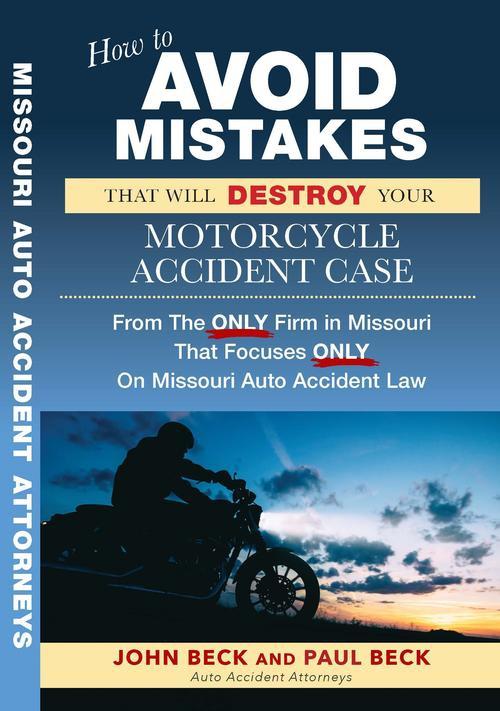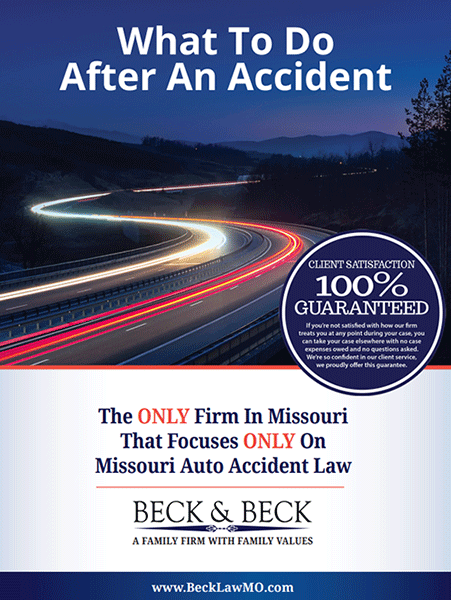In Missouri, punitive damages in car accident claims are awarded to punish the at-fault driver for reckless or malicious behavior and deter similar conduct in the future. These damages are in addition to compensatory damages, which cover the victim’s actual losses.
What Exactly Are Punitive Damages
Punitive damages have a distinct role compared with standard compensation: they are meant to penalize particularly harmful actions and prevent them from happening again, rather than cover your expenses.
Although punitive damages are assessed together with medical bills and lost wages, their main purpose is to address the wrongdoing itself rather than compensate for the victim’s financial losses.
How They Differ From Compensatory Damages
The money still goes to the injured person, but the legal purpose is punishment and deterrence, so the spotlight is on what the at-fault party did, how reckless it was, and whether ordinary compensation would be an inadequate response.
When Missouri Allows Them
Missouri sets a high bar. Missouri law, through RSMo Section 510.261, says a person asking for punitive damages has to present clear and convincing proof that the defendant either intended to cause the injury or showed an obvious disregard for the safety of others.
There is also a procedural step: you cannot plead punitive damages in the initial filing, and you must ask the court for permission later, after evidence shows the standard could be met.
Examples in Crash Cases
Punitive damages may be awarded when a driver’s conduct far exceeds simple carelessness, such as in cases of road rage, street racing, drunk driving, or intentionally causing an accident. Since this kind of conduct puts others at risk, the law allows extra penalties to make the person responsible answer for it and to help prevent it from happening again.
Missouri Punitive Damage Laws
In Missouri, punitive damages are only available under certain laws that set clear limits on when they can be awarded and how much money can be granted. Unlike damages meant to cover hospital bills, physical therapy, or lost wages, these aren’t about paying someone back.
Their purpose is to punish severe misconduct and discourage it from happening again. Two key statutes outline how these damages work: RSMo Section 510.265 and RSMo Section 537.068.
Limits Under RSMo Section 510.265
Missouri law sets caps on the amount of punitive damages, with a few exceptions. Under this statute:
- Punitive damages cannot exceed $500,000 or five times the compensatory award, whichever is greater.
- These limits do not apply when the defendant has been convicted of, or pled guilty to, a related felony, or if the State of Missouri is the plaintiff.
- The state is entitled to half of any punitive damages awarded.
- A jury or judge may weigh the defendant’s net worth when deciding the award.
- The punitive portion can be tried separately from the rest of the case.
Because of these rules, punitive damages are often used as leverage during settlement discussions. The possibility of a large award, even with limits, can push defendants to make more reasonable offers.
Personal Responsibility Under RSMo Section 537.068
RSMo Section 537.068 makes clear that punitive damages must be paid by the defendant personally. Unlike other types of damages, these payments cannot be shifted to an insurance company, even if the policy covers ordinary losses.
The rule is meant to do two things. It makes the person at fault cover the cost themselves and stops insurance from softening the blow of reckless or intentional conduct. This way, punitive damages actually do what they’re meant to do—punish the wrongdoer and reinforce accountability.
Why These Laws Matter
Sections 510.265 and 537.068 restrict how punitive damages are used but don’t take away their value. For the person filing the claim, the award might be capped, but it can still make a real difference in the case. For the person at fault, it means they have to cover the cost themselves, since insurance won’t step in.
Proving the At-Fault Driver’s Actions Were Intentionally Malicious
In Missouri, it isn’t enough to point to simple negligence when asking for punitive damages. As we mentioned, the law requires a stronger showing that the defendant’s behavior went well beyond ordinary mistakes. Courts apply the clear and convincing evidence standard to make sure these awards are only used in cases where the conduct was extreme.
The “Clear and Convincing” Standard
Clear and convincing evidence is tougher to prove than the standard used in most civil cases. In a regular claim, it’s enough to show something probably happened. For punitive damages, the jury has to be left with a firm belief that the defendant acted with intent or in a way that showed no regard for others.
What Needs to Be Proven
In Missouri, to get punitive damages, it isn’t enough to show the driver simply made a mistake. You need evidence that the driver acted intentionally or recklessly. This could include driving extremely fast in crowded areas, ignoring repeated warnings about unsafe habits, or making decisions that they knew might harm someone.
How the Judge and Jury Are Involved
If the judge decides that punitive damages can be looked at, the jury takes over. The jury reviews the facts to determine if the driver deliberately acted in a way that could harm others or took big risks while knowing the dangers. If the jury feels the driver was malicious or clearly disregarded safety, they can decide to award punitive damages.
Missouri law also lets the jury look at the defendant’s finances when deciding the amount, to make sure the punishment is enough to have an impact.
How Punitive Damages Are Calculated
In Missouri, courts do not follow a fixed formula to determine punitive damages. Instead, they examine how severe the defendant’s actions were, the harm those actions caused, and the surrounding circumstances of the incident.
The law sets a maximum of either five times the compensatory damages or $500,000, whichever is higher, but judges have the discretion to adjust the figure. If the person at fault has a low income or has already been penalized through fines or criminal sentences, the court may lower the award.
In contrast, a wealthy defendant may face a larger sum so that the penalty carries real weight and discourages them or others from acting recklessly again.
Defendant’s Income and Wealth
As stated, the defendant’s financial standing plays an important role in deciding punitive damages. If the person has a modest income, the court usually lowers the award to prevent an unmanageable burden, whereas a wealthy defendant may face a higher amount to ensure the penalty has real impact. The objective is to balance fairness with discouraging severe misconduct.
Other Factors Courts Consider
Missouri judges review what the defendant meant to do, whether they showed any remorse, and if they are already subject to criminal penalties. If the amount of punitive damages feels too high, it can be appealed.
By looking at all of these points together, the court works to make sure the punishment hits the wrongdoer appropriately and also makes clear that reckless or dangerous behavior will not be tolerated.
Are Punitive Damages Taxable?
For tax purposes, punitive damages are treated differently from most compensatory awards. In Missouri, if a court orders punitive damages following a car accident, the IRS views that money as taxable.
In most cases, you’ll have to report that money as income on your federal tax return. Compensatory damages usually aren’t taxed when they’re meant to cover medical bills or injuries.
Understanding the Tax Implications
When a court gives both compensatory and punitive damages, only the punitive part usually counts for federal taxes. So, if you get $100,000 in total and $30,000 of that is labeled punitive, you’d normally have to pay taxes on that $30,000.
The compensation meant to cover injuries or medical bills, generally isn’t taxed. Knowing this difference makes it easier to understand what you actually owe if you receive an award that includes both kinds of damages.
Planning Ahead
Because tax regulations can be complicated, consulting a tax professional or speaking with our experienced St. Louis auto accident attorneys is wise.
They guide you through your tax obligations and help you get organized before receiving a settlement or award, so you don’t run into any unexpected financial issues. Recognizing that punitive damages are normally taxed by the IRS, while compensatory damages usually are not, lets you approach your post-accident finances with greater clarity and confidence.
Consult With Our Missouri Car Crash Law Firm Today
Getting hurt in a car accident changes your life unexpectedly. Bills come in, work gets interrupted, and insurance companies start calling. It’s easy to feel like you’re being pushed into quick decisions before you’ve even had a chance to catch your breath. That’s where having the right lawyer can make a difference.
At Beck & Beck Missouri Car Accident Lawyers, we don’t handle every type of case. We only work on Missouri car accident claims. That focus means we know how local courts view these cases, the arguments insurers tend to use, and the kind of proof that actually makes a claim stronger.
We take that knowledge and use it to build your case so the outcome reflects what you’ve really lost, not just the bills that arrived in the mail.
When you contact us, the first step is simple. We talk with you, go over what happened, and explain what options you have. There’s no charge for that conversation, and we only get paid if we recover money for you. You shouldn’t have to figure this out on your own or accept less than what’s fair.
Related Articles
Car totaled, not at fault in Missouri

